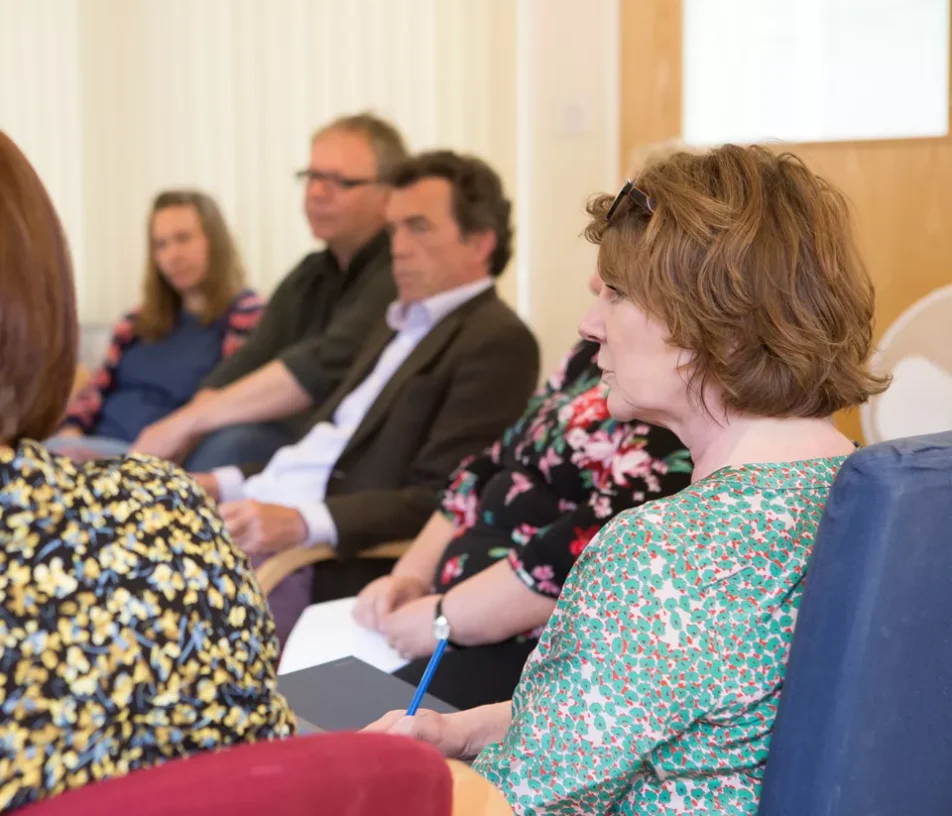
FOSTERING ASSESSMENT
While the fostering assessment may seem daunting, we’ll try to make the process as smooth and enjoyable as possible. We’re here to support you and your family.
What’s involved in the fostering assessment process?
Whether you’re in the early stages of considering fostering or about to start your application, we understand that you may be feeling a little anxious about what’s involved in the fostering assessment.
And while it’s an incredibly personal piece of work, our experienced assessment team have a sensitive, non-judgemental and relaxed approach, so that you can enjoy the process as much as possible. In fact, many applicants have found the process therapeutic and rewarding, as they look back at their life and everything they’ve overcome.
There are a number of stages within the assessment, including:
- Social work visits
- Background checks
- Personal and professional references
- Prepare to Foster training
All the information gathered throughout the process will be brought together in a Form F report and presented to an independent fostering panel who will make a recommendation on your suitability to foster. The process generally takes 4-6 months to complete, however, timescales may vary depending on your personal circumstances.
What’s the purpose of the fostering assessment?
The fostering assessment – also known as a Form F assessment – is a crucial piece of work to ensure the safety and wellbeing of children in our care. And every foster parent in the UK must complete an assessment to become approved.
We work with children and young people with complex needs, who have often experienced a history of neglect, abuse and trauma. Sadly, love alone is not enough to transform the lives of these children; they need foster parents who are resilient, patient, empathetic and undeniably committed to their growth and development. Through social work visits, checks, references and training, we’re able to ensure that you have the qualities that can make a life-changing difference to a child.
Social work visits
Once your application has been accepted, you’ll be allocated an assessing social worker who will carry out your assessment, including a series of social work visits (around 8-10 visits) over the course of 2 or 3 months.
During these visits, we’ll start to explore your life story and ask you to speak about your family and the relationship you have with your parents, siblings and children (if relevant), your childhood experiences and any significant ex-partners. We’ll also speak about your work experience, physical and mental health, motivation to foster and more.
It’s completely normal to feel apprehensive about sharing difficult experiences in your life. However, we often find that these moments of vulnerability help us to discover your strength, resilience and how you’re likely to respond to challenging situations in future.
Once all the information has been gathered, your assessing social worker will write up a report, which will later be presented to a fostering panel. You’ll have an opportunity to read through and sign off the report before it’s shared.

Checks and references
As part of the assessment, we’ll also complete a number of background checks and collect several references. These include:
- Full DBS (Disclosure and Barring Service) on anyone in the fostering household over 18 years old
- Local authority checks
- Personal, employment and former partner references
- Medical assessment
- Home safety checks
- Pet assessment
- Financial assessment

Frequently Asked Questions
Here are the steps you’ll need to take to apply to become an ISP foster carer:
- Take your first step – simply complete our online enquiry form or give us a call on 0800 0857 989.
- Initial call – we’ll give you a call, so you can learn more about fostering, the children we work with and the wrap around support we provide to our foster parents, plus answer any of your questions. If you’re ready to move forward, we’ll ask you a few questions and arrange a home visit.
- Home visit – one of our team will visit you at home, where we’ll spend more time getting to know you and vice versa. The visits tend to last between 1-2 hours and are a fantastic opportunity for you to find out everything you need to know to decide whether fostering is right for you. These can also be completed virtually via a video call.
- Apply to foster – you’ll need to complete an application form to be considered to become a foster parent. If successful, you’ll be allocated an independent assessing social worker, who start your fostering assessment. The application form can be completed online or via a hard copy that we can send to you.
Once your application has been approved, you’ll start your fostering assessment which generally takes around 4-6 months to complete.
There are a number of stages within the fostering assessment, including:
- Social work visits with an Assessing Social Worker – normally 8-10 visits across several months.
- Background checks, including an enhanced DBS (Disclosure and Barring Service).
- Personal and professional references.
- Training to prepare you in your role as a foster carer.
All the information gathered throughout the process will be brought together in a Form F report and presented to an independent fostering panel who will make a recommendation on your suitability to foster. The process generally takes 4-6 months to complete, however, timescales may vary depending on your personal circumstances.
Will I be employed by ISP or self-employed?
Foster carers are classed as self-employed and so you’ll, therefore, need to register as self-employed with HMRC and submit a tax return – also known as a self-assessment – every year while fostering.
While income from fostering is taxable, there are specialist tax rules that mean that you can earn up to a certain amount, absolutely tax-free.
Experience working with children and young people isn’t necessary, as our specialist training programme will provide you with all the skills and knowledge you need to make an extraordinary difference and become a true fostering professional.
Pre-approval training – preparing you for the role
Before you start your fostering career, you’ll attend some preparatory training that’s designed to give you a good idea of the work, what’s involved and what to expect.
New to fostering – developing your core skills
Once approved, you’ll attend a variety of training courses within your first year of fostering that are designed to help you complete your Training Support and Development Standards (TSDS).
These courses cover a range of vital topics, including safeguarding, child protection, creating a therapeutic childcare environment, paediatric first aid and more.
Advanced course – building specialist knowledge
We also have a wide range of other specialist courses to choose from, such as Autism Awareness, Foetal Alcohol Syndrome, Theraplay and keeping children safe online. Plus, the opportunity to study for professional qualifications such as NVQ3 or a QCF Level 3 in Health and Social Care.
Yes, background checks will need to be completed on all adults over the age of 18 years old who are living in the foster home.
As part of your fostering assessment, we’ll carry out various mandatory and optional background checks, such as an enhanced DBS (Disclosure and Barring Service), local authority and health and safety checks, as well as collect a number of personal and professional references.
These checks and references are a vital part of the application process to ensure the safety and wellbeing of the children and young people we may place with prospective foster carers.
Yes, our application form is available online.
However, first, you’ll need to speak to our fostering advisers, who will give you a call to take some initial details and then arrange for somebody to visit you at home, or via video call.
No, there’s absolutely no cost to apply to foster.
From the moment you take your first step to approval, it generally takes around 4-6 months to complete your fostering assessment. However, these timescales may vary depending on your personal circumstances and availability for the social work visits.
Speak to our team today
Whether you’re looking for more information or you’re ready to apply, we’re here to help you on your journey.
Enquiry Form
The company takes the requirements of GDPR seriously in ensuring the privacy and lawful processing of personal data provided to us by you. Please view our privacy notice which explains how the company will manage and use your personal data. This site is protected by reCAPTCHA and the Google Privacy Policy and Terms of Service apply.

